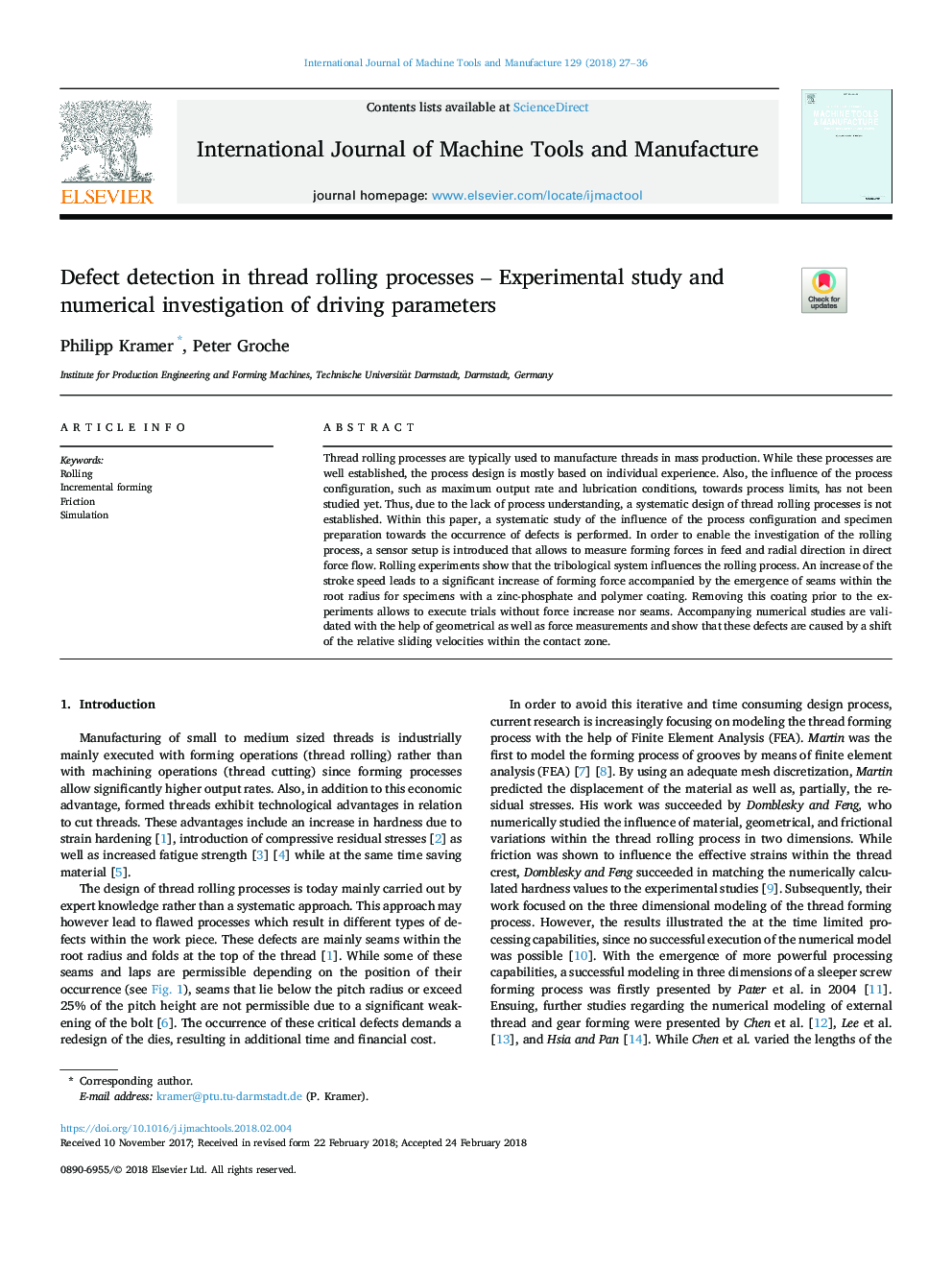| Article ID | Journal | Published Year | Pages | File Type |
|---|---|---|---|---|
| 7173350 | International Journal of Machine Tools and Manufacture | 2018 | 10 Pages |
Abstract
Thread rolling processes are typically used to manufacture threads in mass production. While these processes are well established, the process design is mostly based on individual experience. Also, the influence of the process configuration, such as maximum output rate and lubrication conditions, towards process limits, has not been studied yet. Thus, due to the lack of process understanding, a systematic design of thread rolling processes is not established. Within this paper, a systematic study of the influence of the process configuration and specimen preparation towards the occurrence of defects is performed. In order to enable the investigation of the rolling process, a sensor setup is introduced that allows to measure forming forces in feed and radial direction in direct force flow. Rolling experiments show that the tribological system influences the rolling process. An increase of the stroke speed leads to a significant increase of forming force accompanied by the emergence of seams within the root radius for specimens with a zinc-phosphate and polymer coating. Removing this coating prior to the experiments allows to execute trials without force increase nor seams. Accompanying numerical studies are validated with the help of geometrical as well as force measurements and show that these defects are caused by a shift of the relative sliding velocities within the contact zone.
Related Topics
Physical Sciences and Engineering
Engineering
Industrial and Manufacturing Engineering
Authors
Philipp Kramer, Peter Groche,
